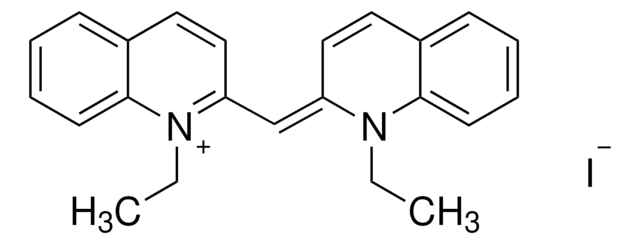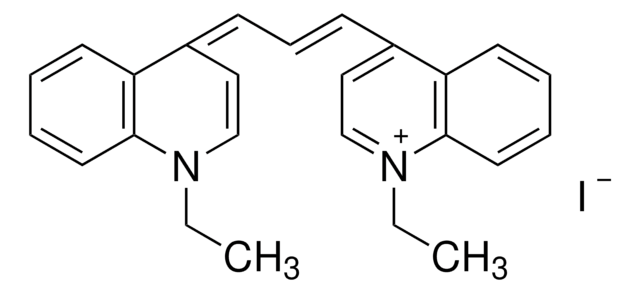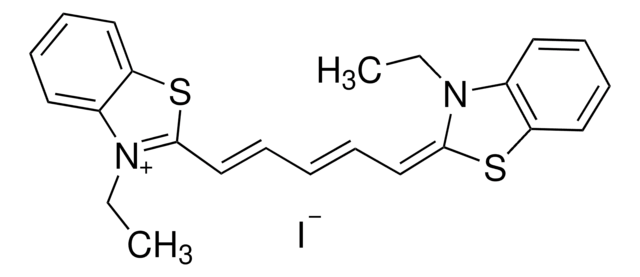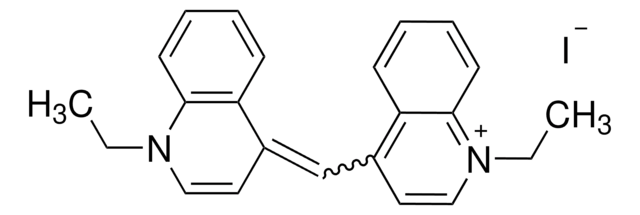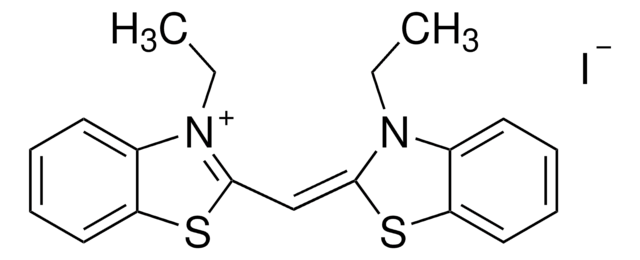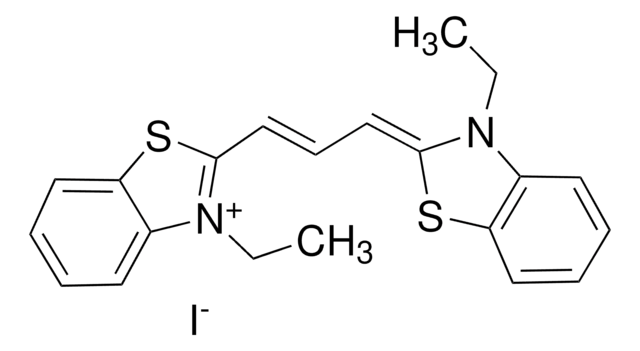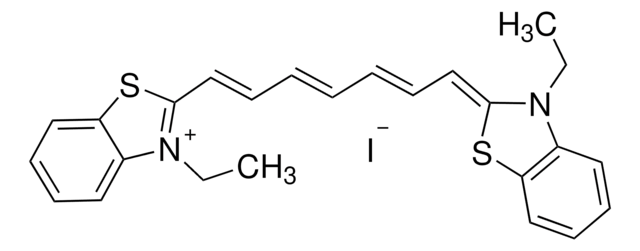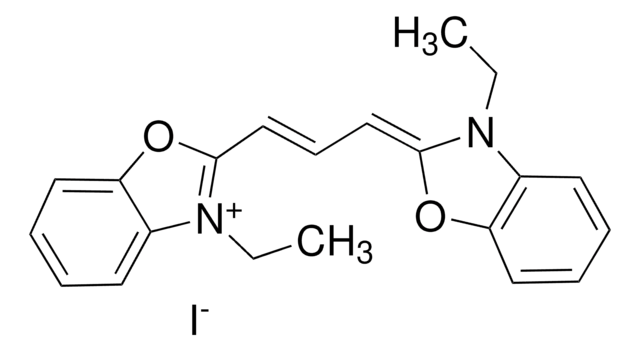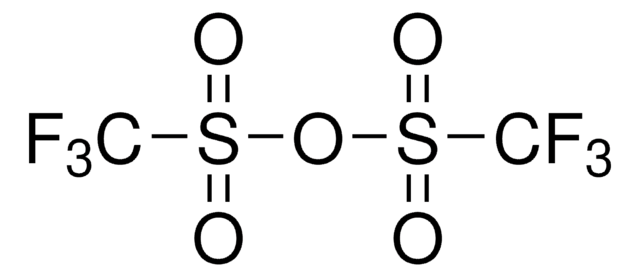166510
1,1′-Diethyl-2,2′-carbocyanine iodide
97%
Synonym(s):
Pinacyanol iodide, Quinaldine blue
About This Item
Recommended Products
Assay
97%
form
powder
mp
295 °C (dec.) (lit.)
solubility
ethanol: 10 mg/mL
λmax
614 nm
ε (extinction coefficient)
≥180000 at 602-608 nm in ethanol
≥80000 at 560-566 nm in ethanol
application(s)
diagnostic assay manufacturing
hematology
histology
storage temp.
2-8°C
SMILES string
[I-].CCN1\C(=C\C=C\c2ccc3ccccc3[n+]2CC)C=Cc4ccccc14
InChI
1S/C25H25N2.HI/c1-3-26-22(18-16-20-10-5-7-14-24(20)26)12-9-13-23-19-17-21-11-6-8-15-25(21)27(23)4-2;/h5-19H,3-4H2,1-2H3;1H/q+1;/p-1
InChI key
QWYZFXLSWMXLDM-UHFFFAOYSA-M
Related Categories
Signal Word
Danger
Hazard Statements
Precautionary Statements
Hazard Classifications
Acute Tox. 3 Dermal - Acute Tox. 3 Inhalation - Acute Tox. 3 Oral
Storage Class Code
6.1A - Combustible acute toxic Cat. 1 and 2 / very toxic hazardous materials
WGK
WGK 3
Flash Point(F)
Not applicable
Flash Point(C)
Not applicable
Personal Protective Equipment
Choose from one of the most recent versions:
Already Own This Product?
Find documentation for the products that you have recently purchased in the Document Library.
Our team of scientists has experience in all areas of research including Life Science, Material Science, Chemical Synthesis, Chromatography, Analytical and many others.
Contact Technical Service
